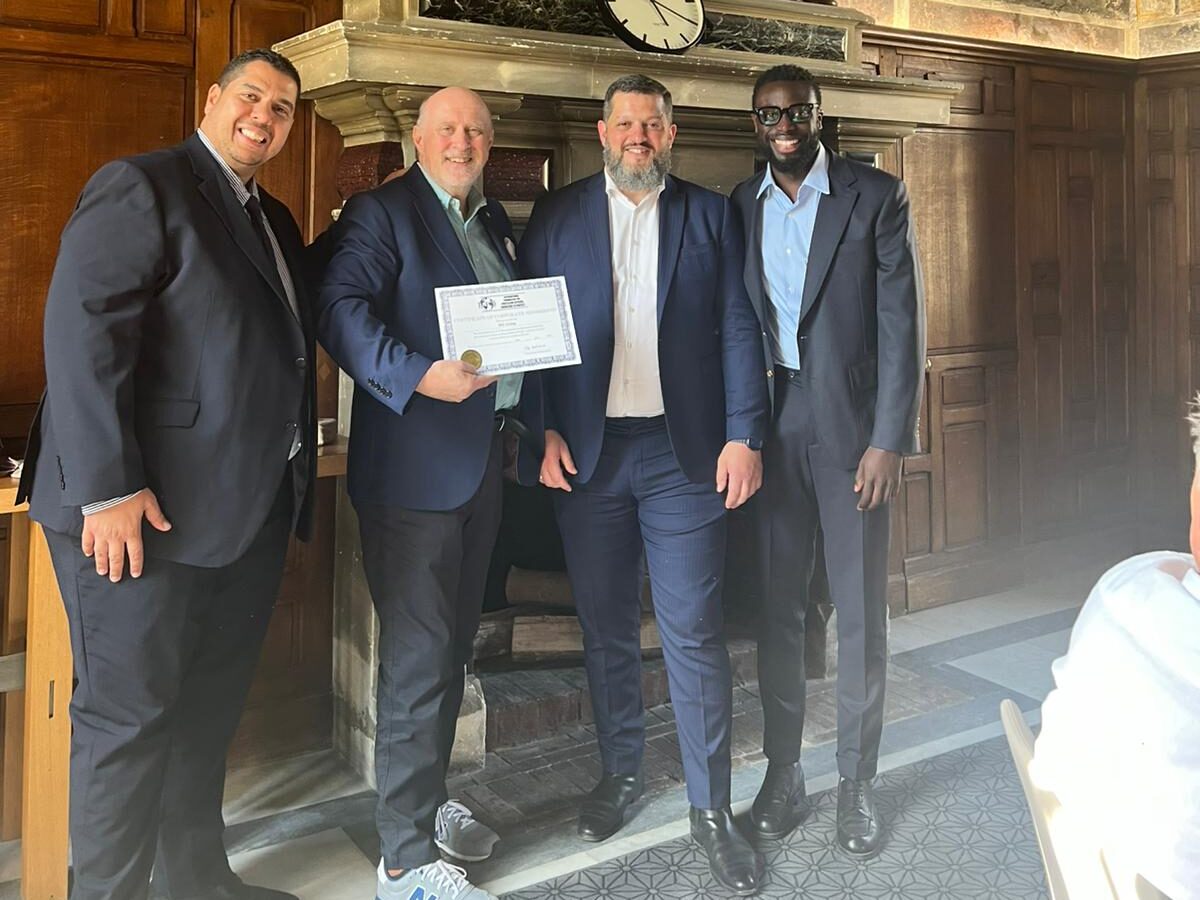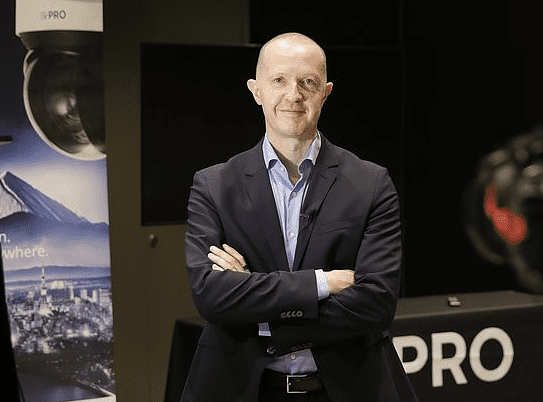After reaching the 20-year anniversary of the 9/11 attacks, and draw ever closer to the 20-year anniversary of the London bombings, the public is more anxious than before of terrorism
People all around the world gathered around their television screens, watching the moment two planes crashed into the World Trade Centre in the US. A day that changed the lives of so many around the world. Americans watched in horror as the terrorist attacks of September 11, 2001, left nearly 3,000 people dead in New York City, Washington, D.C.. Nearly 20 years later, they watched in sorrow as the nation’s military mission in Afghanistan – which began less than a month after 9/11 – came to a bloody and chaotic conclusion.
The enduring power of the Sept. 11 attacks is clearly felt across the globe. An overwhelming share of people who are old enough to recall the day remember where they were and what they were doing when they heard the news. Yet an ever-growing number of Americans have no personal memory of that day, either because they were too young or not yet born.
A review of US public opinion in the two decades since 9/11 reveals how a badly shaken nation came together, briefly, in a spirit of sadness and patriotism; how the US public initially rallied behind the wars in Afghanistan and Iraq, with the help of the UK, though support waned over time; and how people now viewed the threat of terrorism at home and the steps the government takes to combat it.
As the country comes to grips with the tumultuous exit of US military forces from Afghanistan, the departure has raised long-term questions about US foreign policy and America’s place in the world. Yet the public’s initial judgments on that mission are clear: A majority endorses the decision to withdraw from Afghanistan, even as it criticises the Biden administration’s handling of the situation. And after a war that cost thousands of lives – including more than 2,000 American service members – and trillions of dollars in military spending, a new Pew Research Center survey finds that 69% of US adults say the United States has mostly failed to achieve its goals in Afghanistan.
Historical legacy
Shock, sadness, fear, anger: The 9/11 attacks inflicted a devastating emotional toll on the public and their view of public safety. The worry that the city centres, urban environments and streets that they work and live in are no longer safe. But as horrible as the events of that day were, a 63% majority of Americans said they couldn’t stop watching news coverage of the attacks.
Chart shows days after 9/11, nearly all Americans said they felt sad; most felt depressed
Pew Research’s first survey following the attacks went into the field just days after 9/11, from Sept. 13-17, 2001. A sizable majority of adults (71%) said they felt depressed, nearly half (49%) had difficulty concentrating and a third said they had trouble sleeping.
It was an era in which television was still the public’s dominant news source – 90% said they got most of their news about the attacks from television, compared with just 5% who got news online – and the televised images of death and destruction had a powerful impact. Around nine-in-ten Americans (92%) agreed with the statement, “I feel sad when watching TV coverage of the terrorist attacks.” A sizable majority (77%) also found it frightening to watch – but most did so anyway.
Americans were enraged by the attacks, too. Three weeks after 9/11, even as the psychological stress began to ease somewhat, 87% said they felt angry about the attacks on the World Trade Center and Pentagon.
Fear was widespread, not just in the days immediately after the attacks, but throughout the fall of 2001. Most Americans said they were very (28%) or somewhat (45%) worried about another attack. When asked a year later to describe how their lives changed in a major way, about half of adults said they felt more afraid, more careful, more distrustful or more vulnerable as a result of the attacks.
Even after the immediate shock of 9/11 had subsided, concerns over terrorism remained at higher levels in major cities – especially New York and Washington – than in small towns and rural areas. The personal impact of the attacks also was felt more keenly in the cities directly targeted: Nearly a year after 9/11, about six-in-ten adults in the New York (61%) and Washington (63%) areas said the attacks had changed their lives at least a little, compared with 49% nationwide. This sentiment was shared by residents of other large cities. A quarter of people who lived in large cities nationwide said their lives had changed in a major way – twice the rate found in small towns and rural areas.
The impacts of the Sept. 11 attacks were deeply felt and slow to dissipate. By the following August, half of US adults said the country “had changed in a major way” – a number that actually increased, to 61%, 10 years after the event.
The importance of 9/11 transcended age, gender, geographic and even political differences. The 2016 study noted that while partisans agreed on little else that election cycle, more than seven-in-ten Republicans and Democrats named the attacks as one of their top 10 historic events.
Afghanistan and Iraq
With the US now formally out of Afghanistan – and with the Taliban firmly in control of the country – most Americans (69%) say the US failed in achieving its goals in Afghanistan, with a renounding percentage of UK citizens agreeing.
But 20 years ago, in the days and weeks following 9/11, Americans overwhelmingly supported military action against those responsible for the attacks. In mid-September 2001, 77% favored US military action, including the deployment of ground forces, “to retaliate against whoever is responsible for the terrorist attacks, even if that means US armed forces might suffer thousands of casualties.”
Many Americans were impatient for the Bush administration to give the go-ahead for military action. In a late September 2001 survey, nearly half the public (49%) said their larger concern was that the Bush administration would not strike quickly enough against the terrorists; just 34% said they worried the administration would move too quickly.
The public’s support for military intervention was evident in other ways as well. Throughout the fall of 2001, more Americans said the best way to prevent future terrorism was to take military action abroad rather than build up defenses at home. In early October 2001, 45% prioritised military action to destroy terrorist networks around the world, while 36% said the priority should be to build terrorism defenses at home.
Initially, the public was confident that the US military effort to destroy terrorist networks would succeed. A sizable majority (76%) was confident in the success of this mission, with 39% saying they were very confident.
Support for the war in Afghanistan continued at a high level for several years to come. In a survey conducted in early 2002, a few months after the start of the war, 83% of Americans said they approved of the US-led military campaign against the Taliban and al-Qaida in Afghanistan. In 2006, several years after the United States began combat operations in Afghanistan, 69% of adults said the US made the right decision in using military force in Afghanistan. Only two-in-ten said it was the wrong decision.
But as the conflict dragged on, first through Bush’s presidency and then through Obama’s administration, support wavered and a growing share of Americans favored the withdrawal of US forces from Afghanistan. In June 2009, during Obama’s first year in office, 38% of Americans said US troops should be removed from Afghanistan as soon as possible. The share favoring a speedy troop withdrawal increased over the next few years. A turning point came in May 2011, when US Navy SEALs launched a risky operation against Osama bin Laden’s compound in Pakistan and killed the al-Qaida leader.
The public reacted to bin Laden’s death with more of a sense of relief than jubilation. A month later, for the first time, a majority of Americans (56%) said that US forces should be brought home as soon as possible, while 39% favored US forces in the country until the situation had stabilised.
Over the next decade, US forces in Afghanistan were gradually drawn down, in fits and starts, over the administrations of three presidents – Obama, Donald Trump and Joe Biden. Meanwhile, public support for the decision to use force in Afghanistan, which had been widespread at the start of the conflict, declined. Today, after the tumultuous exit of US troops from Afghanistan, a slim majority of adults (54%) say the decision to withdraw troops from the country was the right decision; 42% say it was the wrong decision.
There was a similar trajectory in public attitudes toward a much more expansive conflict that was part of what Bush termed the “war on terror”: the US war in Iraq. Throughout the contentious, yearlong debate before the US invasion of Iraq, Americans widely supported the use of military force to end Saddam Hussein’s rule in Iraq.
Importantly, most Americans thought – erroneously, as it turned out – there was a direct connection between Saddam Hussein and the 9/11 attacks. In October 2002, 66% said that Saddam helped the terrorists involved in the 9/11 attacks on the World Trade Center and the Pentagon.
In April 2003, during the first month of the Iraq War, 71% said the US made the right decision to go to war in Iraq. On the 15th anniversary of the war in 2018, just 43% said it was the right decision. As with the case with US involvement in Afghanistan, more Americans said that the US had failed (53%) than succeeded (39%) in achieving its goals in Iraq.
The threat of terrorism after 9/11
On the morning of July 7, 2005, bombs are detonated in three crowded London underground stations and one bus during the peak of the city’s rush hour. The synchronised suicide bombings, which were thought to be the work of al-Qaida, killed 56 people including the bombers and injured another 700. It was the largest attack on Great Britain sinceWorld War II. No warning was given.
The train bombings targeted the London Underground. Nearly simultaneous explosions, at about 8:50 a.m., occurred on trains in three locations: between the Aldgate and Liverpool Street stations on the Circle Line; between the Russell Square and King’s Cross stations on the Piccadilly Line; and at the Edgware Road station, also on the Circle Line. Almost an hour later, a double-decker bus on Upper Woburn Place near Tavistock Square was also hit; the bus’s roof was ripped off by the blast.
The attacks took place as world leaders, including British Prime Minister Tony Blair, were meeting at the G8 summit in nearby Scotland. In his remarks after learning of the blasts, Blair called the attacks barbaric and pointed out that their taking place at the same time as the G8 summit was most likely purposeful. Later, he vowed to see those responsible brought to justice and that Great Britain, a major partner with the US in the war in Iraq, would not be intimidated by terrorists.
With the anniversary of 9/11, it brings back the horrifying memories of the London attacks in addition to the New York attack. Couple this with the increased tension post Covid lockdown and the Taliban taking over Afghanistan, public safety is evidently impacted. The security industry must do their part to protect the urban environment and relieve the tensions of the public.
Dame Eliza Manningham-Buller, Ex Director General of the Security Service
I speak not as a politician, nor as a pundit, but as someone who has been an intelligence professional for 32 years.
We now know that the first Al-Qaida-related plot against the UK was the one we discovered and disrupted in November 2000 in Birmingham. A British citizen is currently serving a long prison sentence for plotting to detonate a large bomb in the UK. Let there be no doubt about this: the international terrorist threat to this country is not new. It began before Iraq, before Afghanistan, and before 9/11.
In the years after 9/11, with atrocities taking place in Madrid, Casablanca, Bali, Istanbul and elsewhere, terrorists plotted to mount a string of attacks in the UK, but were disrupted. This run of domestic success was interrupted tragically in London in July 2005. Since then, the combined efforts of the Service, the police, SIS and GCHQ have thwarted a further major conspiracies in the UK, saving many hundreds (possibly even thousands) of lives.
What I can say is that today the extremists are motivated by a sense of grievance and injustice driven by their interpretation of the history between the West and the Muslim world. This view is shared, in some degree, by a far wider constituency. If the opinion polls conducted in the UK since July 2005 are only broadly accurate, over 100,000 of our citizens consider that the July 2005 attacks in London were justified.
Justin Crump, Terror expert, CEO, Sibylline
The 2020 attacks in France highlight the difficulties faced by security services given the Covid pandemic. As we warned earlier this year, would-be terrorists have had time and space to radicalise, and incidents at this time have greater impacts due to existing public anxiety over the disease. The economic consequences will continue to reinforce this trend, with groups such as Islamic State and al-Qaeda maintaining propaganda efforts – and potentially finding a more receptive audience.
Moreover, as shown by the comments of the Director General of the Security Service, those working to counter threats are handicapped by less cover for surveillance and all the same impediments of remote working that the rest of us are facing. This continues to set the scene for a resurgent low-level terror threat in Europe and the US, although of course the right wing is becoming ever more threatening – despite issues in France currently hinging on jihadist sentiment. What is particularly notable is how quickly the political situation and statements led to low-level action, plus of course strategic consequences in the form of embargos and anti-French sentiment across many regions. Such triggers will continue to drive action by lone individuals or small groups using crude yet effective tactics, compounding the existing uncertainty in the security situation.
The fact that the perpetrator of one incident seemingly only travelled recently from Tunisia as a migrant will further drive up suspicion and hostility towards those making such journeys, with the flow of people being set to increase due to the economic and global circumstances.
To stay up to date on the latest, trends, innovations, people news and company updates within the global security market please register to receive our newsletter here.
Media contact
Rebecca Morpeth Spayne,
Editor, Security Portfolio
Tel: +44 (0) 1622 823 922
Email: [email protected]

























